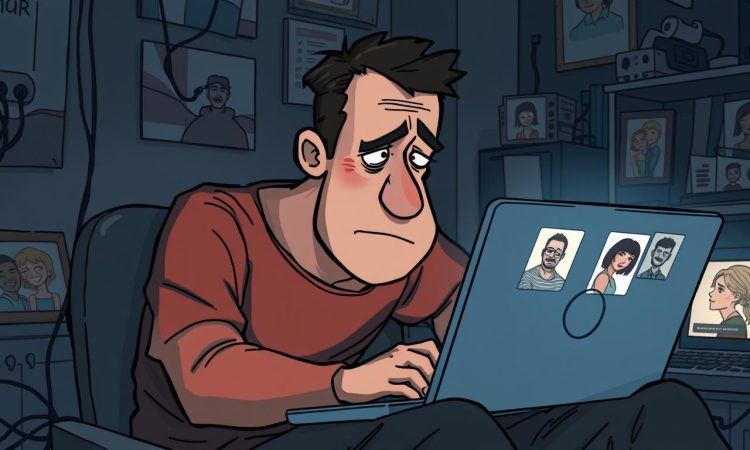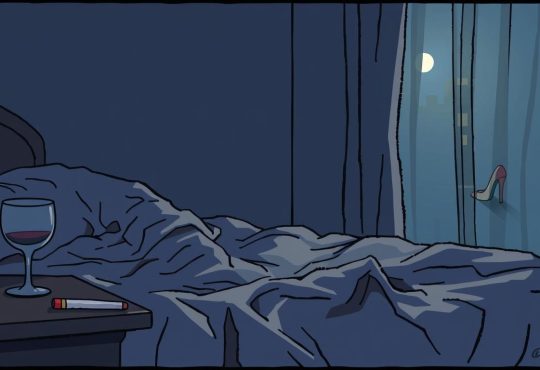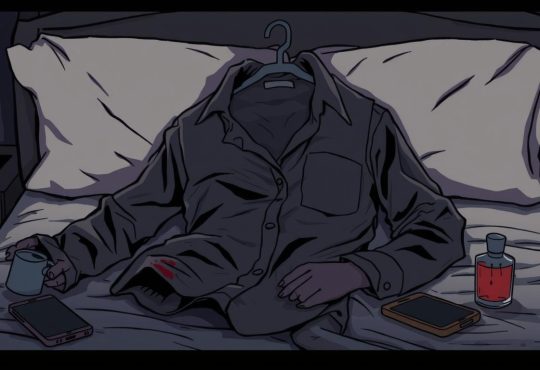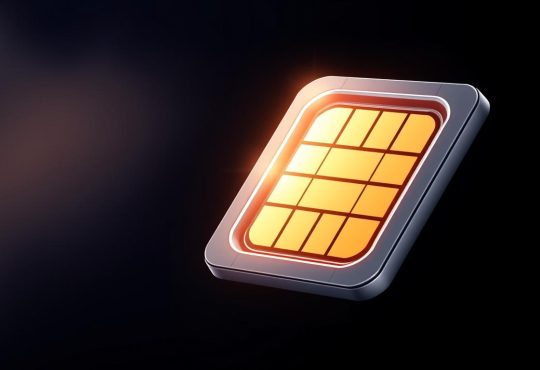
Have you ever wondered how something as simple as a dating website could disrupt a marriage? What starts as curiosity or boredom can quickly spiral into a behavior that impacts trust, communication, and the very foundation of a relationship.
Many couples face challenges when one partner becomes overly involved in online dating platforms. This behavior can lead to emotional distance, broken trust, and even the breakdown of the family unit. Recognizing the signs early is crucial to addressing the issue.
In this article, we’ll explore the behavioral and emotional indicators of this addiction. We’ll also discuss its impact on relationships and families. Professional help is available, and many couples have successfully rebuilt their trust and connection.
By sharing insights from research and real-life experiences, we aim to provide a roadmap for healing. Whether you’re seeking answers or support, you’re not alone. Together, we can navigate this challenging time and find a way forward.
On this Page:
- 1 Understanding the Landscape of Online Dating Addiction
- 2 Recognizing the Signs: When my husband is addicted to dating websites
- 3 Impact on Marriage and Family Dynamics
- 4 Psychological and Social Factors Behind the Addiction
- 5 Navigating Counseling and Professional Support
- 6 Telling Personal Stories: Real-Life Encounters and Lessons Learned
- 7 Practical Steps for Healing and Moving Forward
- 8 Conclusion
Understanding the Landscape of Online Dating Addiction
The digital age has transformed how we connect, but not always for the better. Over the past decade, dating apps and websites have reshaped the way people approach romance. Platforms like Tinder, Bumble, and Hinge have made it easier to meet new people, but they’ve also introduced new challenges.
The Rise of Dating Apps and Websites
In the last ten years, dating apps have grown exponentially. What started as niche platforms have become mainstream. For example, Tinder launched in 2012 and quickly became a cultural phenomenon. By 2021, it had reached over 75 million users worldwide.
These platforms offer convenience and accessibility. A person can swipe through profiles in minutes, connecting with potential matches instantly. However, this ease of use can lead to overuse. Some individuals find themselves spending hours on these sites, seeking validation or excitement.
How Digital Platforms Affect Relationship Dynamics
Digital dating has changed the way relationships form. In the past, meeting someone often involved mutual friends or shared activities. Today, a single swipe can lead to a conversation or even a date. While this can be exciting, it also creates new dynamics.
Online interactions can provide quick validation. A match or message can boost self-esteem, but it can also lead to dependency. For some, the thrill of meeting someone new becomes addictive. This can strain existing relationships, as one partner may feel neglected or betrayed.
Despite these challenges, many people find meaningful connections through dating apps. The key is balance. Understanding how these platforms work can help individuals use them in a healthy way.
Recognizing the Signs: When my husband is addicted to dating websites
Behavioral shifts often signal deeper issues that need attention. When a person spends excessive time on dating sites, it can disrupt daily life and strain relationships. Recognizing these signs early is crucial for addressing the problem effectively.
Behavioral and Emotional Indicators
One of the first signs is a change in daily habits. For example, a partner may spend hours online, often late at night or early in the morning. Secretive phone use, such as hiding screens or quickly closing apps, is another red flag.
Emotionally, the person may seem distant or preoccupied. They might show less interest in family activities or become defensive when questioned about their online behavior. These shifts can lead to feelings of neglect or insecurity in the relationship.
Patterns Observed in Daily Life
Over time, these behaviors can form patterns. A partner might check dating sites every week or even multiple times a day. This can lead to neglect of responsibilities, such as work or household tasks.
Real-life experiences show how these patterns disrupt normal life. For instance, one woman shared that her husband’s excessive use of dating apps caused arguments and eroded trust. Recognizing these patterns is the first step toward seeking help.
It’s important to approach the situation with compassion. Understanding the underlying reasons for this behavior can open the door to healing. Professional support is available, and many couples have successfully rebuilt their relationships.
Impact on Marriage and Family Dynamics
Trust is the cornerstone of any strong relationship, but what happens when it’s broken? When a husband hides his online activities, it can create a rift that affects everyone in the family. The emotional toll extends beyond the couple, impacting children and even close friends.
Communicating the Emotional Toll
Secretive behaviors, like spending hours every week on a dating site, can lead to feelings of betrayal. A man’s actions can deeply affect his partner, leaving them questioning the foundation of their relationship. On the other hand, open communication can help address these issues before they escalate.
Each person’s feelings must be acknowledged. When one partner feels neglected, it’s essential to have honest conversations. Friends can offer valuable support during these crises, providing a listening ear and practical advice.
Trust Issues and Its Ripple Effects on Children and Friends
The question of trust becomes central in these situations. Children often sense tension between their parents, even if they don’t fully understand it. This can lead to anxiety or confusion, affecting their emotional well-being.
Rebuilding a relationship takes time and effort. Simple gestures, like discussing feelings or seeking counseling, can begin to repair emotional bonds. The entire family benefits when trust is restored, creating a healthier and more supportive environment.
Psychological and Social Factors Behind the Addiction
Understanding the psychological roots of dating website addiction can shed light on its grip. Often, this behavior stems from a need for validation or an escape from daily pressures. By exploring these factors, we can better address the emotional and behavioral aspects of this issue.
The Role of Validation and Endorphin Release
Dating platforms activate the brain’s reward system, releasing endorphins and adrenaline. Each match or message creates a rush, similar to the effects of substances like alcohol or cocaine. This intermittent reinforcement keeps users coming back for more.
For many, the validation gained from online interactions becomes addictive. A person may seek constant reassurance, leading to compulsive behavior. Over time, this cycle can disrupt real-life relationships and emotional well-being.
Midlife Crisis and Escapism Explored
A midlife crisis often drives individuals to seek excitement outside their routine. Dating websites offer an easy way to escape responsibilities and feel youthful again. This behavior can be a response to fear of aging or dissatisfaction with current life circumstances.
Social factors also play a role. The anonymity of online platforms allows people to explore without judgment. However, this escapism can lead to neglect of real-world relationships and responsibilities.
By recognizing these psychological and social triggers, we can begin to address the root causes of addiction. Acceptance and understanding are the first steps toward healthier coping strategies.
Seeking professional help can be a turning point in addressing relationship challenges. Counseling offers a safe and structured environment to explore emotions, rebuild trust, and foster understanding. Whether you’re considering individual or couple therapy, professional support can provide clarity and tools for healing.
Individual vs. Couple Counseling Options
Individual counseling focuses on personal growth and self-awareness. It’s ideal for addressing underlying issues like low self-esteem or emotional struggles. On the other hand, couple counseling emphasizes communication and mutual understanding, helping partners navigate conflicts together.
Choosing the right option depends on your unique situation. For example, if one person feels overwhelmed, individual therapy might be the first step. Couple counseling, however, is essential when both partners are ready to work on their relationship.
Finding Trusted Mental Health Resources
Finding the right therapist is crucial. Start by researching licensed professionals with experience in relationship or addiction counseling. Look for credentials, reviews, and testimonials to ensure they’re a good fit.
Don’t hesitate to ask questions during initial consultations. A good therapist will create a safe space for open dialogue. Additionally, consider support groups or online forums where you can connect with others facing similar challenges.
Building a network of supportive friends can also enhance your journey. Friends provide emotional support and encouragement, complementing the work done in therapy.
Taking the step to seek help is courageous. Many couples have successfully rebuilt their relationships through counseling, proving that healing is possible with time and effort.
Telling Personal Stories: Real-Life Encounters and Lessons Learned
Stories of resilience and recovery can inspire hope in even the most challenging times. Hearing how others have navigated similar struggles can provide comfort and guidance. Personal narratives offer a way to understand the complexities of relationships and the path to healing.
Narratives from Long-Term Marriages
One couple shared how transparency helped them rebuild their relationship after a year of turmoil. The husband admitted to spending hours on a dating site, which caused deep hurt. Through open communication and counseling, they found a way to restore trust.
Another woman described how her marriage survived despite her partner’s online activities. She emphasized the importance of setting boundaries and seeking support from a trusted friend. Their story highlights the power of perseverance and mutual understanding.
Experiences with Recovery and Change
A man who struggled with online dating addiction shared his journey to recovery. He realized the impact of his actions on his wife and children. With professional help, he learned healthier ways to cope with stress and rebuild his relationship.
Photos from their journey serve as reminders of the progress they’ve made. These images capture moments of connection and growth, symbolizing their commitment to each other. Their story offers hope to others facing similar challenges.
As you reflect on these stories, consider this question: What steps can you take to strengthen your own relationship? Every person’s journey is unique, but the lessons learned can guide you toward a healthier and more fulfilling partnership.
Practical Steps for Healing and Moving Forward
Taking the first step toward healing can feel overwhelming, but it’s also empowering. Whether you’re rebuilding trust or focusing on self-care, small actions can lead to significant change. Let’s explore practical strategies to help you navigate this journey.
Setting Boundaries and Rebuilding Trust
Boundaries are essential for protecting emotional well-being. Start by having an open conversation about expectations. For example, agree on limits for online activities to create a healthier environment.
Rebuilding trust takes time. Begin with small, consistent actions. Show up when you say you will, and be transparent about your intentions. Over time, these efforts can restore confidence in the relationship.
Self-Care and Developing a Support Network
Self-care is a vital part of the healing process. Engage in activities that bring you joy, like exercise, hobbies, or meditation. Prioritizing your well-being helps you stay resilient during challenging times.
Surround yourself with supportive friends and family. A strong network provides encouragement and perspective. Additionally, consider joining support groups or seeking professional guidance to enhance your recovery journey.
Remember, healing is a gradual process. Take one step at a time, and celebrate each milestone along the way. With patience and effort, you can create a brighter future for yourself and your relationship.
Conclusion
Rebuilding trust and connection after challenges in a relationship is a journey worth taking. Recognizing the signs of dating website addiction, such as secretive behavior or emotional distance, is the first step toward healing. These behaviors can strain relationships and impact family dynamics, but understanding the psychological and social factors behind them can pave the way for recovery.
Counseling and professional support play a vital role in addressing these issues. Whether through individual or couple therapy, seeking help can provide clarity and tools for rebuilding trust. Taking small, consistent steps, like setting boundaries or prioritizing self-care, can make a significant difference.
Change is possible with the right support and effort. Reflect on your relationship and consider the steps you can take to strengthen it. You’re not alone—many have walked this path and found hope and healing. Together, we can move forward toward healthier, more fulfilling connections.










